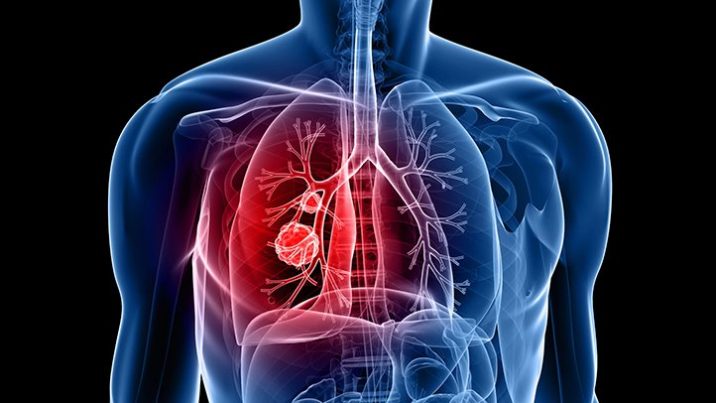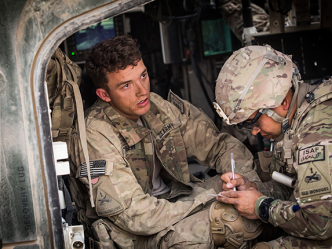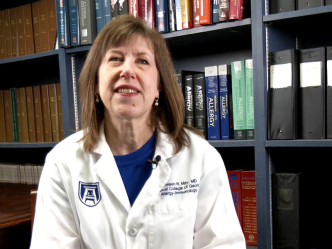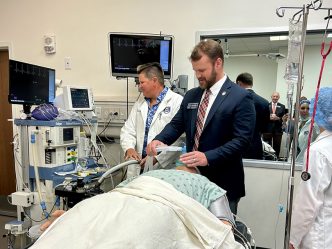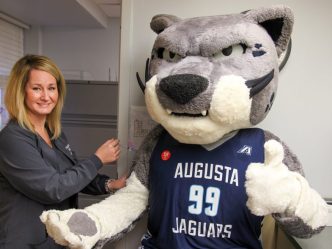Lung cancer is the deadliest of all cancers in the U.S., with 142,670 people dying from lung cancer in 2019 alone, according to the National Cancer Institute.
However, lung cancer fundraising lags behind that for other cancers. For example, $92 million was raised for lung cancer research in 2015, compared with $460 million for breast cancer that same year.
Doctors say there is a stigma against lung cancer patients, due to the fact that it is often caused by cigarette smoking.
“For lung cancer, the awareness is not there,” said Dr. Nagla Abdel Karim of the Division of Hematology/Oncology at the Medical College of Georgia. “It’s the deadliest cancer, which is something a lot of people don’t know about. There’s not a lot of sympathy for our patients.”
Karim specializes in lung cancer and has seen firsthand the great need for care for these patients. That’s why it’s important to promote awareness all year long, beyond November’s Lung Cancer Awareness Month.
“We need more support in the area of screening and treating lung cancer, whether early or late stages,” Karim said.
Some of Karim’s patients are currently taking part in a national clinical trial for lung cancer. The very first patient enrolled for this trial came from the Georgia Cancer Center, and another from the center has been screened.
The trial, which began in June, is currently enrolling patients from all over the country, with 20 enrolled so far and an overall goal of 86. Trials like this are also not as common as for other cancers.
Patients who have small cell lung cancer and pass other certain criteria will be given a new inhibitor drug.
“We believe it will make them have a better response and survive, and be able to fight the disease for a longer time,” Karim said.
As the trial goes on, the Georgia Cancer Center continues to work on ways to treat the symptoms of those with lung cancer. For example, many of those who suffer from it experience shortness of breath.
“We have two lungs. If the tumor blocks one of the lungs, then we don’t get any air or oxygen,” explained Dr. Shaheen Islam, chief of the Division of Pulmonary and Critical Care Medicine at Augusta University Health. “What we can do is go in with a rigid bronchoscope. It’s a metallic tube and we can go in and cut the tumor out. Sometimes if we can’t cut the tumor because it’s too vascular, we can put in a stent. A stent is the like what they use for the heart. We put ours in the airways. Over the last two years I’ve put in 25 stents. We do have to go in and clean the stents periodically.”
Islam added that her team can also remove the tumor using a laser.
Even with advanced lung cancer, Islam has a solution to help stop a buildup of fluid, which is called plural effusion. Doctors can determine how much fluid has been built up using an X-ray or CAT scan.
“You have the chest wall and the lungs are inside the chest wall, and between the lung and the wall there is a space called potential space,” Islam said. “If fluid builds up, the lung is like a balloon. The fluid squishes the lung because the chest wall does not bend due to the ribs. We can put a glue-like medicine in and glue the lung to the chest wall to remove the potential space.”
Treatments for lung cancer have gotten so advanced that some can be done at home by the patient.
“We can also put a catheter in, a tube in the lung where one is inside the chest wall and another is outside,” Islam explained. “So, when the fluid builds up, we can turn on the drain to remove it. Depending on how fast it accumulates, our patients can drain the fluid every other day, or as often as needed at home. After a week or so, they know when it’s time to drain because of the shortness of breath.”
Alleviating these sometimes painful symptoms is key to helping patients get the needed treatment to fight off the cancer.
“We’re not curing; we’re just making the symptoms better,” Islam said. “I try to make this clear to the patients, too. I want to open up the airway so you can breathe better, which will allow you to get cancer treatment. That’s our goal — to help the patients get the treatment.”
 Augusta University
Augusta University
